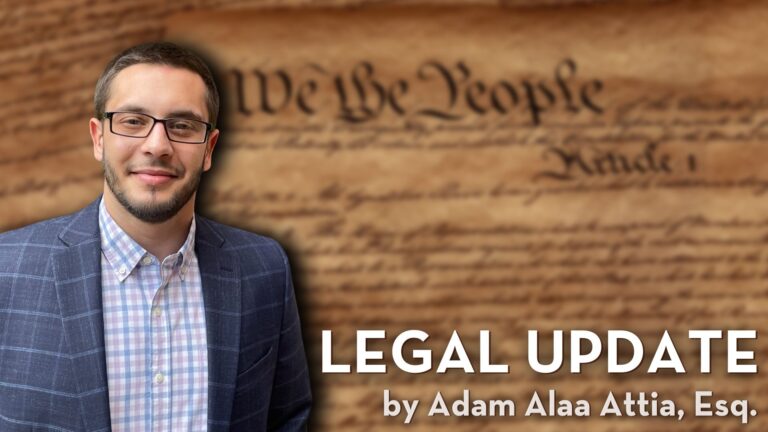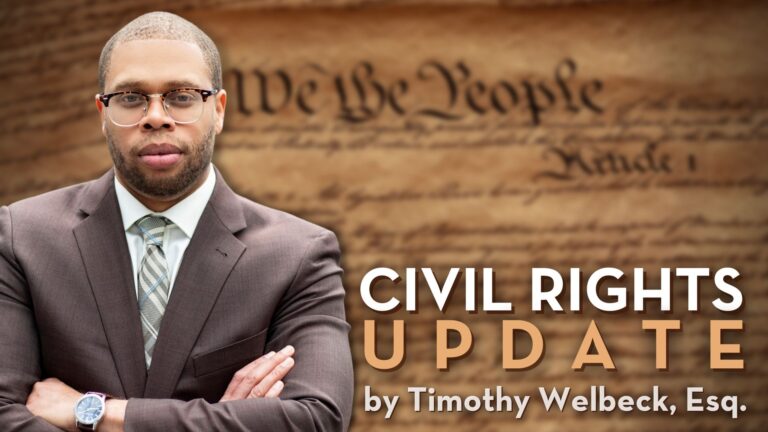 Within the last two weeks, our Legal Department has received two new intakes pertaining to anti-Muslim harassment, bullying, and bigotry in public schools. The first case involves “educator misconduct” in which a faculty member in a rural Pennsylvania school made several anti-Muslim remarks to students. The second case involves a child in a suburban Philadelphia school who was called “terrorist” and “Osama bin Laden” for over a year while school officials told him, and his family, that “kids will be kids.” Most recently, this child was lying on a playground two blocks from his home while he was kicked by multiple children who attend his school – as other children recorded the incident on their cell phone cameras. Video of this beating is already being disseminated through social media and the internet. Still, the school has done nothing.
Within the last two weeks, our Legal Department has received two new intakes pertaining to anti-Muslim harassment, bullying, and bigotry in public schools. The first case involves “educator misconduct” in which a faculty member in a rural Pennsylvania school made several anti-Muslim remarks to students. The second case involves a child in a suburban Philadelphia school who was called “terrorist” and “Osama bin Laden” for over a year while school officials told him, and his family, that “kids will be kids.” Most recently, this child was lying on a playground two blocks from his home while he was kicked by multiple children who attend his school – as other children recorded the incident on their cell phone cameras. Video of this beating is already being disseminated through social media and the internet. Still, the school has done nothing.
For years, CAIR-Philadelphia has told you about our ongoing efforts to end anti-Muslim harassment, bullying, and bigotry in our public schools. Our legal director, Amara Chaudhry-Kravitz, is a leader in this field and has created a number of legal education programs to train other lawyers how to use the legal process to seek justice for children who have been bullied and their families. Ms. Chaudhry-Kravitz is currently utilizing her legal skills on behalf of families who have been subjected to anti-Muslim bigotry, bullying, and harassment in public schools.
Case #1: Educator Misconduct
School personnel are authority figures to whom children accord a great deal of respect, and remarks made by school personnel are generally persuasive and accepted as “true” to many of the children who hear these remarks. This is why CAIR-Philadelphia has concerns whenever it learns of anti-Muslim comments being uttered by school personnel to students on school grounds.
In this case, the faculty member made several comments, to multiple students, which, taken as a whole, portray Muslims as sexual deviants who transgress any number of socially acceptable norms with respect to sex and gender.
Within days of learning of this conduct, Legal Director Amara Chaudhry-Kravitz accepted this case for representation and sent a letter to the school and school district advising them of this conduct by a member of their faculty. Our letter asks school administrators to conduct an investigation into this matter and to take further measures as warranted by the investigation.
Though this case is ongoing, we have already received positive feedback from the client who alerted us to this behavior:
Dear CAIR Legal Director Amara Chaudhry-Kravitz,
Thank you much for assisting my boys in the matter. Even if [faculty member’s name withheld] is not removed, your involvement will signify to the school district that such conduct in the future is simply not acceptable to every member of society and that others in society, aside from me, can find their employee actions and statements unbecoming of someone in education.
[Client’s Name Withheld]
 Case #2: School Bullying (Including Violence)
Case #2: School Bullying (Including Violence)
Our second case is particularly troubling, as it demonstrates the very negative consequences which can result when school officials fail to take appropriate measures to address school bullying which takes place on campus. In this case, the school’s response to persistent and pervasive anti-Muslim verbal taunts was to ignore the problem and tell the child’s family that “kids will be kids.”
The child who was bullied tried to ignore the bullies. But they continued to bully him. He told the bullies to stop. But they did not.
This case demonstrates two facts which the school officials should have known: (1) children who are bullied lack the ability to make the bullying stop, and (2) bullying, if unaddressed, will escalate into violence.
CAIR-Philadelphia is working with the family to negotiate the terms of our legal representation. Once a representation agreement has been approved by all parties, we will take any and all legal and non-legal measures needed to seek justice for this family.
We will update you in the upcoming weeks as to the further action we have taken with respect to this case.



 Case #2: School Bullying (Including Violence)
Case #2: School Bullying (Including Violence)
